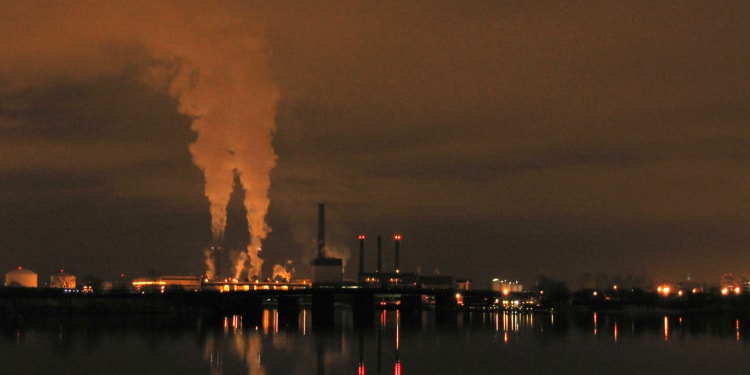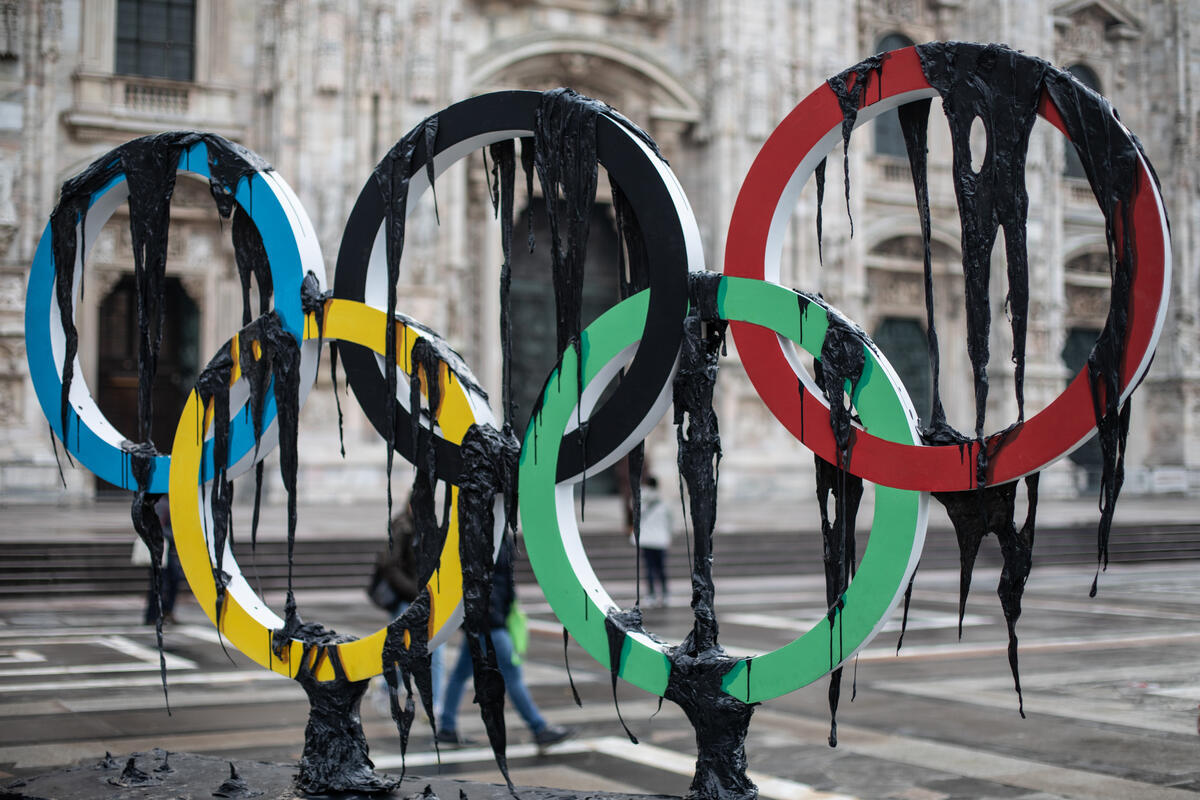After months of heated arguments, on Thursday the Supreme Court sided with West Virginia in a 6 to 3 vote that the EPA overextended its authority under the Clean Air Act and that Congress did not extend the Environmental Protection Agency (EPA) the right to regulate carbon emissions.
Considered a setback for the Biden Administration’s climate goals, the Supreme Court decision comes as one of the most important environmental decisions in years.
The move will not only have serious effects on America’s battle against climate change — especially when it comes to reducing carbon emissions — but puts into question whether other federal agencies including the FBI have regulatory authorities, raising doubts about the legitimacy of the federal structure as a whole.
The case: How did it come about?
Last year, the case came to the Supreme Court after several red states – led by Republicans – and a group of coal companies contested a federal appeals court decision that the EPA could issue regulations on companies’ carbon emissions.
Yet prior to last year, the battle began much earlier during the time of the Obama Administration.
Under the Clean Air Act passed in 1970, the EPA was given the authority to regulate carbon emissions the way they saw was best fit. Yet after years of little progress in the reduction of emissions, the EPA claimed their authority was too limited to be effective.
Thus, in 2015 the EPA issued a plan to reduce carbon emissions from power plants by allowing operators to get more credit when generating more power and less emissions. In response, the Obama Administration issued the Clean Power Plan which attempted to give the EPA these extended authorities. Yet in 2016, the Supreme Court issued a stay after a legal challenge brought on by 27 states over the EPA’s new authority was brought to it.
Once former President Donald Trump took office, the new EPA plan was thrown out the window and pronounced dead.
Later on, the Trump Administration proposed new standards whereby the EPA could regulate only emissions from individual power plants, but yet again the standards were struck down by the U.S. Court of Appeals for the District of Columbia.
As of now, there is no relevant EPA rule along the lines the Obama Administration was trying to pass — yet the possibility of one being developed in the future remains open for the Biden Administration and the EPA is still supposed to have regulation rights under the Clean Air Act giving it the authority to regulate emissions as best fit.
EPA is struck down as West Virginia, a coal-producing state, wins
The Supreme Court ruled with West Virginia that the EPA was overextending its authority in a 6 to 3 vote Thursday with all conservative voices – including the Trump-appointed judges – in the majority.
The majority wrote, “Congress did not grant EPA…the authority to devise emissions caps based on the generation shifting approach the Agency took in the Clean Power Plan” — referring to the Obama-era power plant regulation.
Chief Justice John Roberts, who wrote the majority opinion, cited that the EPA’s efforts to regulate the industry as a whole instead of individual power plants was not correct as it attempted to change the statute from regulating one thing to a completely different issue.
I applaud the Supreme Court's decision to limit the EPA's powers.
Unelected, climate-crazy bureaucrats don't get to decide what our laws are.
It's time to unleash American energy.
— Rep Andy Biggs (@RepAndyBiggsAZ) June 30, 2022
In her dissent, Justice Elena Kagan wrote, “Today, the Court strips the Environmental Protection Agency of the power Congress gave it to respond to ‘the most pressing environmental challenge of our time.’”
Kagan, alongside Justice Stephen Breyer and Sonia Sotomayor who also dissented the decision, wrote “The limits the majority now puts on EPA’s authority fly in the face of the statute Congress wrote. The majority says it is simply ‘not plausible’ that Congress enabled EPA to regulate power plants’ emissions through generation shifting. But that is just what Congress did when it broadly authorized EPA in Section 111 to select the ‘best system of emission reduction’ for power plants.”
Robert Reich, Berkeley professor and former Secretary of Labor in Clinton’s administration, has no doubts:
The SCOTUS ruling in West Virginia v. EPA has major implications for both the environment and the proper functionality of our government. Our climate and the regulatory powers designed to protect individuals, our families, and our communities are in peril.
— Robert Reich (@RBReich) June 30, 2022
And, as Jon Kaiman, a Democrat and former District judge, says, this goes beyond the US and involves the “fate of our whole planet” that will be “online” in the coming midterm elections:
SCOTUS makes another radical right turn, now stripping the EPA’s ability to regulate greenhouse gases.
The fate of our planet on the line this November. It’s more important than ever to send proven leaders to Congress to fight back against this radical, out of touch Court.
— Jon Kaiman (@VoteKaiman) June 30, 2022
The Supreme Court minority in its dissenting opinion made the point that Congress did authorize the EPA the right to regulate emissions under Section 111 of the Clean Air Act. That section states the EPA has authority to regulate emissions of air pollutants from stationary sources through identification of the “best system of emission reduction” that is “adequately demonstrated.”
The ruling, which experts have warned would severely hurt global warming efforts, will have hefty implications for America and the Biden Administration’s carbon emissions goals.
In addition to potentially wrecking major damage to the environment both in America and across the planet, the ruling also puts into question whether federal agencies have any regulatory power considering that the Court ruled the EPA cannot regulate such things without “specific authorization from Congress.”
The decision is a big blow to all of the United State’s federal agencies as it limits the power they can wield.
This is the most serious upset to environmental efforts to address climate change and pollution in America. It means the EPA from now on will be unable to control and reduce significant carbon emissions that continue to drive the climate into chaos. The decision affects both the United States and the rest of the world as they take one step forward yet three steps back on reducing emissions and preventing global warming.
It will be up to the Biden Administration and Congress to pass the well overdue regulation that gives the EPA specific authority to restrict carbon emissions as a whole. The first step in that direction has already been taken with President Biden announcing today that he would support making an exception to the filibuster — the 60-vote threshold in the Senate needed to pass most legislation. Initially intended to codify abortion rights and the right to privacy, the legislation will equally as well apply to the EPA’s mandate.
Editor’s Note: The opinions expressed here by Impakter.com columnists are their own, not those of Impakter.com. — In the Featured Photo: Picture of a factory taken on Janurary 1st, 2006. Source: Sean Riley, Flickr.













